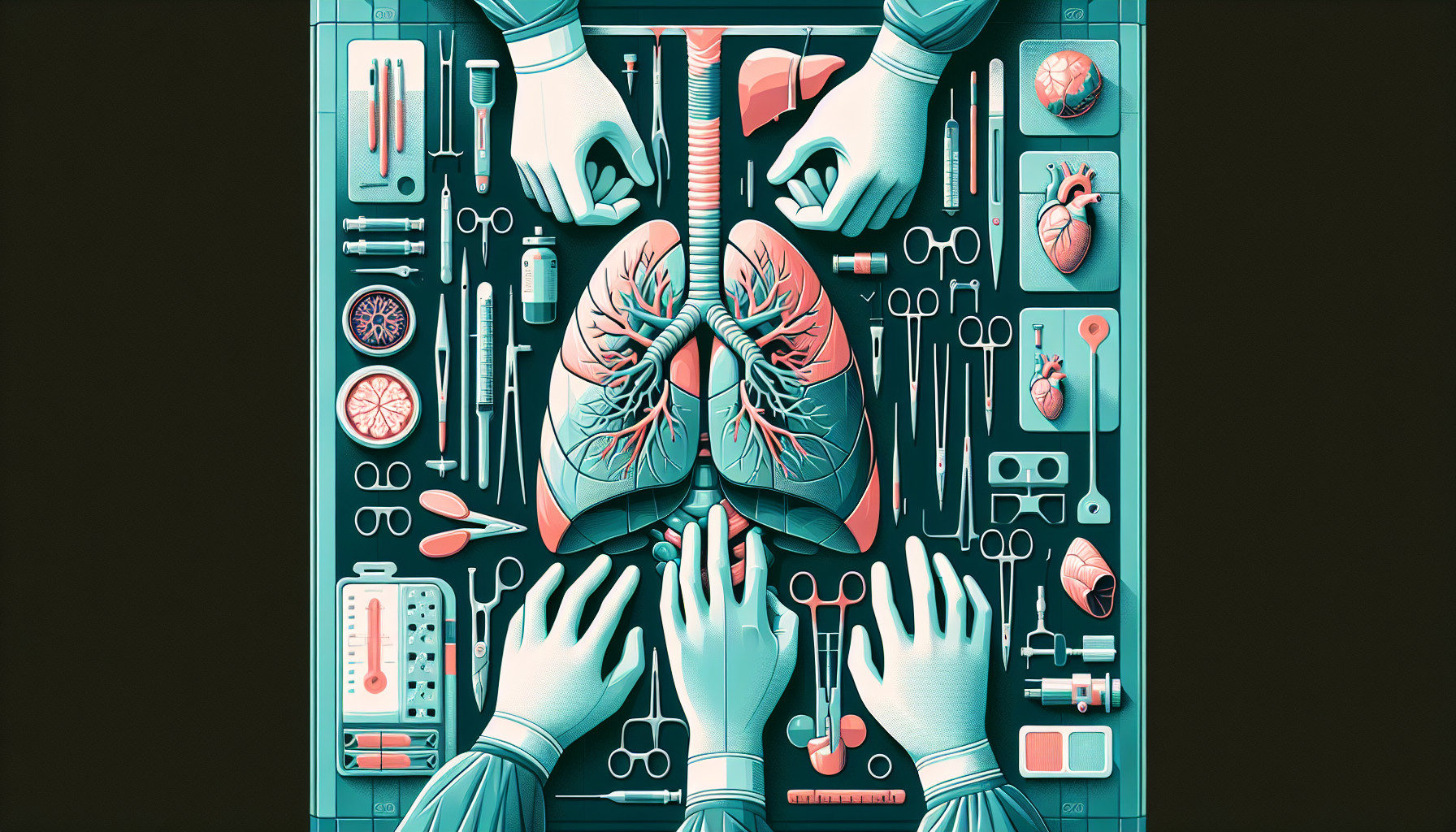Our Summary
Researchers analyzed data from a large surgery database to understand how removing a part of the chest wall along with the lung (a procedure called chest wall resection, or CWR) affects patients’ outcomes after lung cancer surgery. They found that of over 41,000 lung surgeries, only 306 involved this additional procedure. However, those patients who had the chest wall resection were more likely to experience serious complications or death. Even when other factors were taken into account, chest wall resection was linked to an increased risk of these adverse outcomes. The researchers suggest that surgical quality assessments should take into account whether chest wall resection was performed, and are incorporating this factor into their measures of surgery quality.
FAQs
- What is a chest wall resection and how is it linked to lung cancer surgery?
- According to the research, how does chest wall resection affect patient outcomes after lung cancer surgery?
- Why do researchers suggest that surgical quality assessments should consider if a chest wall resection was performed?
Doctor’s Tip
One helpful tip a doctor might tell a patient about lung resection, particularly when considering chest wall resection, is to carefully weigh the potential risks and benefits of the procedure. It is important for the patient to have a thorough discussion with their surgeon about the potential outcomes and potential complications associated with the surgery. Additionally, following the recommended post-operative care guidelines and attending follow-up appointments is crucial for optimal recovery and monitoring of any potential complications.
Suitable For
Patients who are typically recommended lung resection include those with early-stage lung cancer that has not spread beyond the lung, as well as patients with certain benign lung conditions such as lung abscesses or bronchiectasis. Additionally, patients with lung infections, lung tumors, or lung nodules that are causing symptoms or interfering with lung function may also be recommended for lung resection. In some cases, patients with advanced lung cancer may also be considered for lung resection as part of a multimodal treatment plan.
Timeline
Before lung resection:
- Patient is diagnosed with lung cancer and undergoes various tests to determine the stage and extent of the cancer.
- Patient and their healthcare team discuss treatment options, including the possibility of lung resection.
- Patient undergoes preoperative evaluations to ensure they are healthy enough for surgery.
- Patient receives instructions on how to prepare for the surgery, including fasting and stopping certain medications.
- Patient undergoes the lung resection surgery, which may involve the removal of a portion of the lung and possibly the chest wall.
After lung resection:
- Patient is closely monitored in the recovery room for any immediate complications.
- Patient may experience pain and discomfort at the surgical site, which is managed with pain medication.
- Patient undergoes physical therapy to help with breathing and mobility post-surgery.
- Patient is monitored for any signs of infection or other complications.
- Patient may undergo follow-up imaging or tests to ensure the cancer has been successfully removed.
- Patient may need ongoing follow-up care and monitoring to ensure the cancer does not return.
- Patient may experience long-term effects of the surgery, such as changes in lung function or quality of life.
What to Ask Your Doctor
- What is the reason for recommending a lung resection surgery in my case?
- How will the chest wall resection be performed and what are the potential risks and complications associated with it?
- What is the expected recovery time and rehabilitation process after the surgery?
- How will my lung function be affected after the surgery and what can I do to improve it?
- Are there any alternative treatment options available for my condition?
- What is the success rate of lung resection surgery in cases similar to mine?
- How often do you perform lung resection surgeries with chest wall resection, and what is your experience and success rate with this procedure?
- What post-operative care and follow-up appointments will be necessary after the surgery?
- Are there any lifestyle changes or precautions I should take after the surgery to prevent complications?
- Can you provide me with information on support groups or resources for patients who have undergone lung resection surgery?
Reference
Authors: Towe CW, Servais EL, Grau-Sepulveda M, Kosinski AS, Brown LM, Broderick SM, Wormuth DW, Fernandez FG, Kozower BD, Raymond DP. Journal: Ann Thorac Surg. 2022 Dec;114(6):2023-2031. doi: 10.1016/j.athoracsur.2021.10.060. Epub 2021 Dec 10. PMID: 34902307
